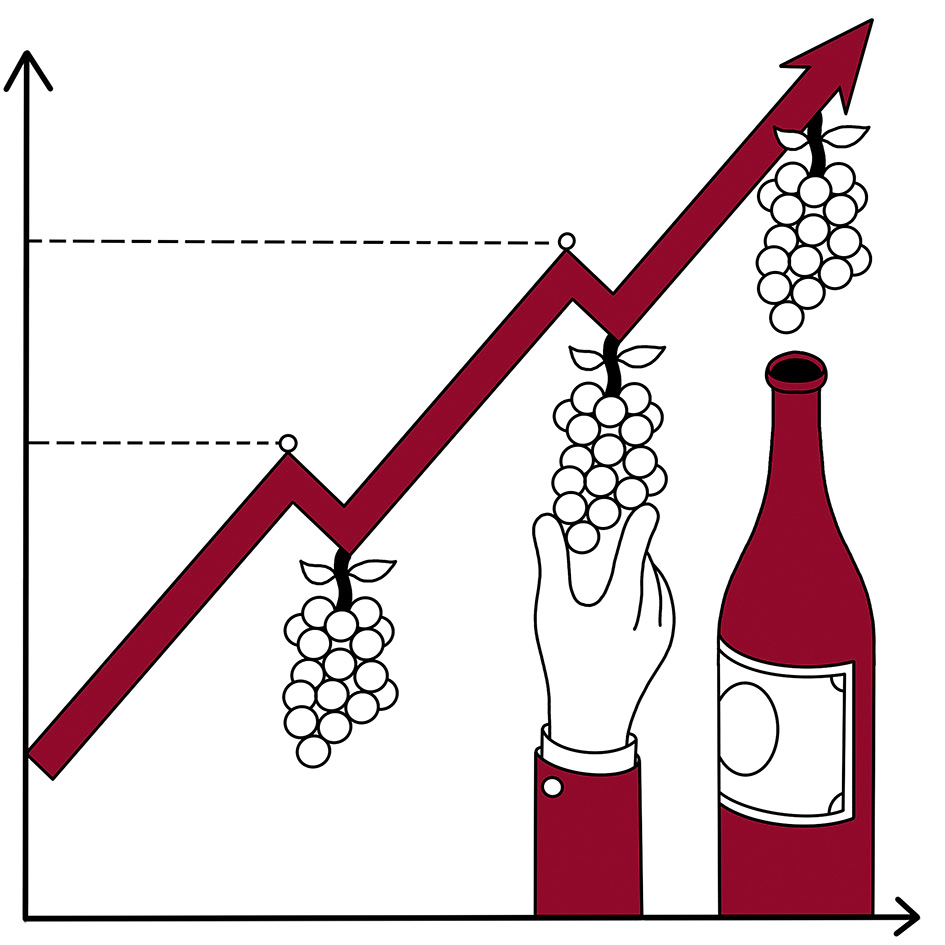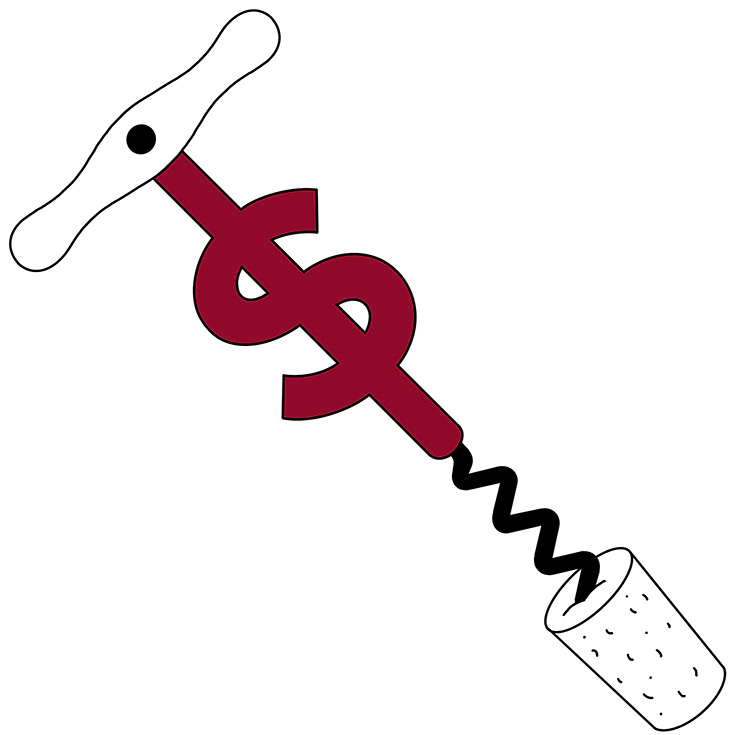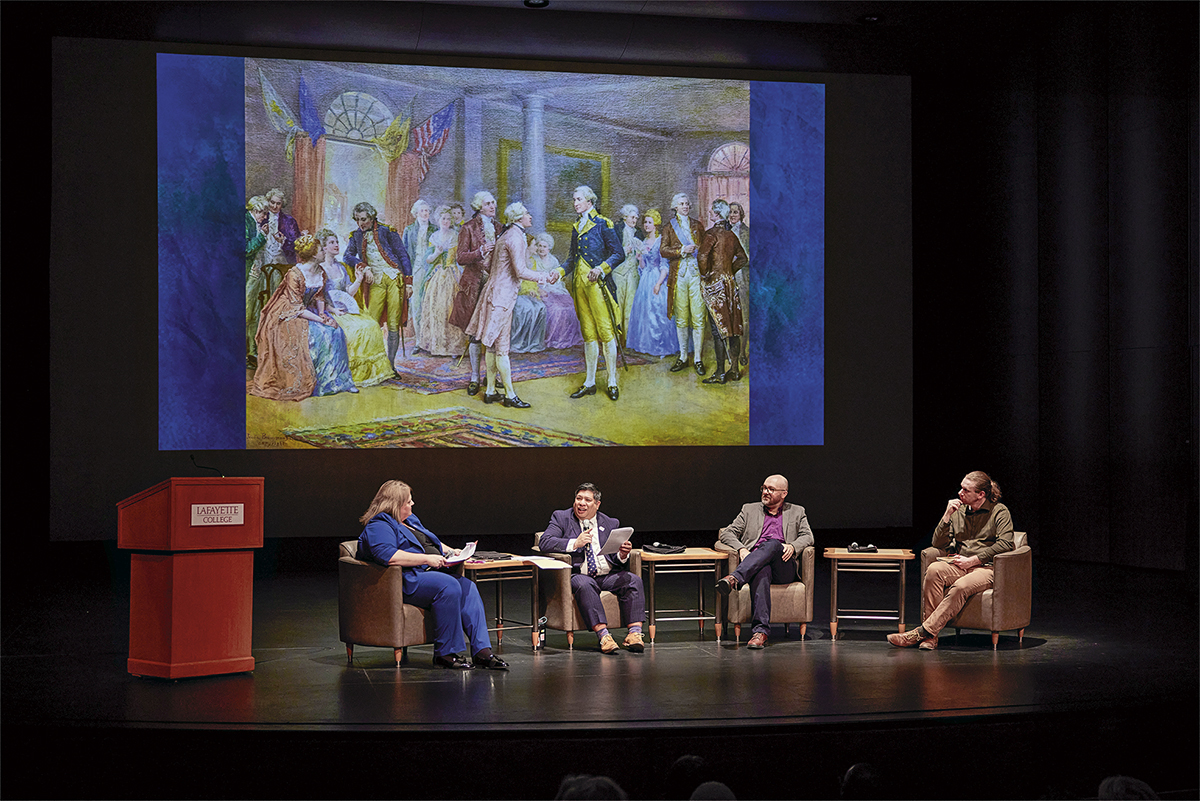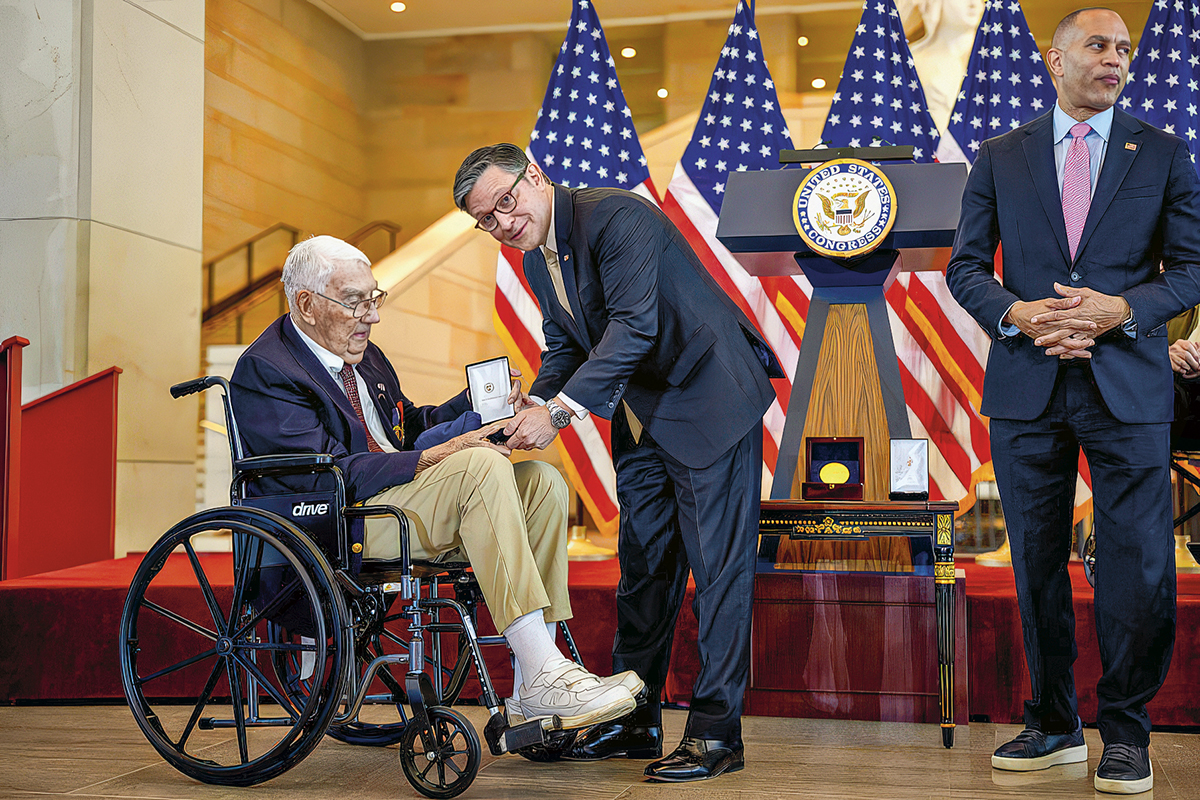In good spirits
Catching up with sommelier and professional wine consultant Carrie Lyn Strong ’99.

Illustration by Antonio Pinna
“It’s all very funny,” she says. “I was a multi-event athlete at Lafayette, and I still do a little bit of ‘everything’ in my work. I educate, I write, I do some sales, I do some logistics, and I maintain my consulting projects.” Carrie Lyn Strong ’99 first entered the restaurant industry as a hostess after 9/11 rattled New York City’s advertising business. Now, more than two decades later, she owns and operates a wine consulting business after rising through the ranks of the beverage world.
The former student-athlete first started to learn about wine while putting her track-and-field footwork to the test behind the bar at TAO, a Lower East Side restaurant. She quickly found her way as a manager and next took a job as service director at Artisanal Fromagerie & Bistro, where she worked with over 200 pairings of wine and cheese and earned her sommelier certification.
From there, she worked as a sommelier and wine director at a number of New York City restaurants, all the while writing about wine for local and national publications. When COVID-19 hit and restaurants shuttered their doors, she moved to Pennsylvania and took her business, Strong Wine Consulting, LLC, online at carrielynstrong.com, where it flourished.
She now offers private wine classes and dinners, consults with restaurants and purchasers,and works for importing and distribution companies. Strong still contributes to magazines, too—one of her more recent articles in Food & Wine explores a lesser-known Italian appellation that sells Barbera red wines for a steal.
Spike in beverages
“As more and more products come out—alcoholic sodas, seltzers, craft beers, different spirits and cocktails, and even THC products as they become legal in more states—there’s more for the consumer to choose from,” Strong says. “So each category might get a smaller piece of the pie.” Elsewhere in the beverage industry, many brands are also offering no- or low-alcohol options for the rising health-conscious buyer. Still, says Strong, there are always people who gravitate toward wine.
Tips for beginners
Be curious about the unfamiliar. “People tend to feel like, as an adult, they should know more about wine, but most of us in this profession really love wine and enjoy educating people,” Strong says. “It’s OK to ask questions.”
Tastes might evolve—or not
“The interesting thing about wine in this country is that we don’t grow up with it on our dining room tables like they do in Europe,” Strong says, explaining that’s why there is typically much to be learned about “likes” or “dislikes.” When it comes to figuring out these preferences, she suggests having fun with the process and not to take it too seriously: “No one else can tell you what you like other than you.”
Look locally
People might be surprised to hear how many superb wineries exist in the United States—and where they are. “Every state in the country makes wine, and a lot of them are really great, even in places you might not expect like Pennsylvania, New Hampshire, Arizona, Texas, and New Mexico, to name a few,” Strong says. “You don’t have to go far to get great wine, and I would encourage people to support local wines.”
“No one else can tell you what you like other than you,” Strong says.




